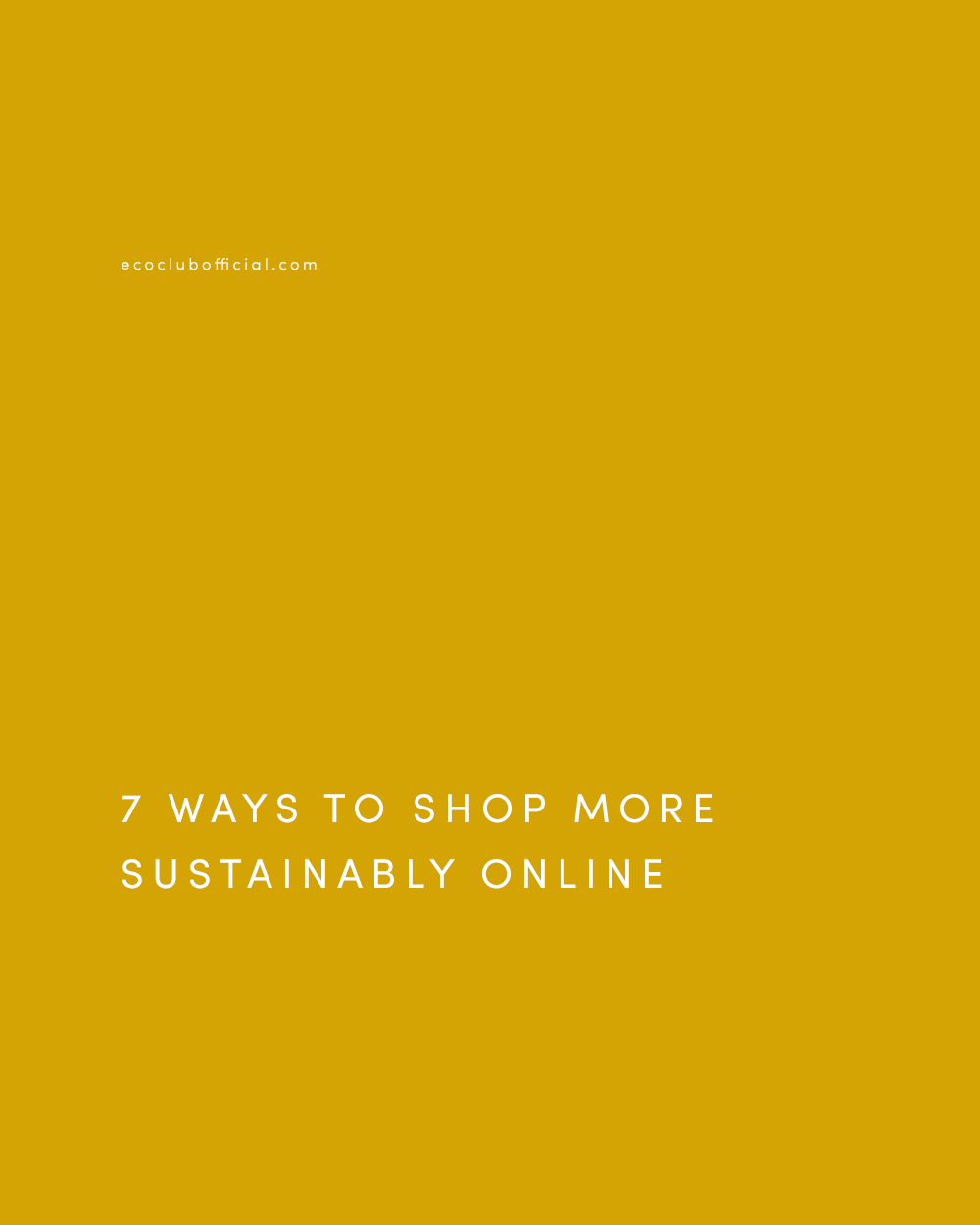It’s encouraging to see more online sites and marketplaces than ever designed to inspire conscious consumers to shop more sustainably and ethically. Having an online shop also allows people to start businesses without the major investments of brick-and-mortar shops, so it’s getting easier to shop small. Of course, serious byproducts of making online purchases include the extreme carbon cost of all that shipping/delivering, the waste involved those billions of packages, or the fact that up to 40% of purchases made online are returned versus only 5-10% of in-store purchases. So while I absolutely appreciate and advocate for the accessibility of online shopping, especially in terms of ethically produced goods, there is obviously room for improvement.
There is still a lot we can control. By shopping mindfully—that is, staying present and conscious of our purchases’ consequences—we can make online shopping a bit more sustainable.
7 Ways To Shop More Sustainably Online

support small
Shopping small isn’t just for your local brick and mortar (although now more than ever, they need our help!). Always check to see if those same shops are online as well, as this may be the only way they can keep running during the pandemic. I also love finding small shops on Instagram by using maker hashtags, like #heytheremaker, #makersandthinkers, #sustainablebrands, and #brandswithpurpose.
search for values, sourcing, or sustainability commitment pages
No, this doesn’t guarantee it won’t be greenwashing, but it still cuts out tons of companies and as you learn more about sustainable shopping you’ll become more aware of the language used by brands who can only talk the talk. You can also make the most of a site’s search bar by searching for words you *don’t* want to see! For example, when I shop for skincare or chocolate, sometimes I search “palm oil” since that’s an ingredient I want to avoid. I always breathe a big sigh of relief when it doesn’t come up!
shipping minimums
Make peace with the fact that online shopping = paying for shipping. The brands themselves have worked the costs of shipping into their business model, whether they’re adding it to your purchase, or pricing their items a little higher so they can advertise the attractive “free shipping” promo. (Why do you think Etsy now prioritizes brands in search if they offer free shipping?) Bottom line, you’re probably paying for it one way or another, so just adding items to your cart to reach minimums is only encouraging you to spend more money on things you don’t need!
request customer service
One of the benefits of shopping small is that when you need help you generally get to speak to a real person! Take advantage of this by asking questions and making requests when you have them. If you’re uncertain about anything regarding materials, size, quantity, quality etc., go ahead and ask before making the purchase. Do the research so you’re less likely to make a return.
offer feedback
Leave reviews and offer feedback whenever you can! Feedback is so important to small businesses, especially ethical/sustainable shops that are competing with cheap, mass-produced goods. The idea of purchasing from an unfamiliar brand, paying more, or having a tougher time returning an item can all be turn-offs to the consumer. Leaving a review might help a customer take the risk and choose the sustainable option!
As far as constructive criticism, it can help small businesses for you to send them a message with suggestions. I work exclusively with small businesses and know how many hats they wear. The feedback can be super helpful for their growth and success, as long as it’s done respectfully!
read the full item description
From a design standpoint, most people don’t want to see a ton of text on a single webpage. For this reason many shops ‘hide’ their full item descriptions, including materials or ingredients in dropdown that you can expand. Make sure you always get the full story behind an item, once again, so you know it’s something you want (and that aligns with your values and doesn’t include materials or ingredients you don’t support) and not something that you’ll return, or worse, will go to waste.
let it sit in your cart
If you’re not 100% sure you need your item, like, yesterday, sit on it. That’s the beauty of online shopping! It sounds simple, but taking the time to fully consider and reflect on what you want is an act of mindfulness. It has saved me from many an impulse buy!

What do you think of these tips? Next time you’re making an online purchase, observe the steps you normally take and consider how you might shop more sustainably. I’d love to hear how it goes!
your two cents